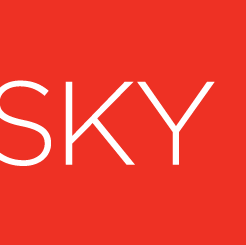As the new year starts up, recruiters are considering what 2020 will bring. What trends flourished or changed in 2019, and how can companies develop robust strategies for the long term? From recruiting technology to company culture, we take stock of the big waves in recruiting.
Company Culture
The past few years have had a lot of talk about company culture, and how it impacts recruitment and retention. Culture is not just about candidate-fit but is a priority of job-seekers and a means of recruiting in and of itself. 65% of millenials rank company culture as more important than salary, and 52% of those 45 years and older agree, according to Glassdoor.
Most people consider a company’s culture before applying to a job, and wouldn’t work for a company that doesn’t align with their values. 7 in 10 would look for work elsewhere if their company culture deteriorates.
It’s no wonder that company culture is important, as it impacts an employee’s daily life, trust in their coworkers and the company, ability to succeed, and job satisfaction.
But job-seekers and employees are not the only ones who know the importance of company culture. In 2019, the Business Roundtable issued a statement redefining the purpose of a corporation. Among five points, they included investing in employees, adding that, “we urge leading investors to support companies that build long-term value by investing in their employees and communities.”
“This starts with compensating them fairly and providing important benefits. It also includes supporting them through training and education that help develop new skills for a rapidly changing world. We foster diversity and inclusion, dignity and respect.”
Hopefully, this statement will herald a shift towards more fair and sustainable business, with considerations not just for shareholders, but also for customers, employees, communities, and suppliers.
Addressing the Skill Gap
We are currently in a skill shortage, with 52% of HR professionals saying that the skills shortage has worsened in the past two years. Skill gaps are most visible in trades, middle-skilled jobs, and high-skilled STEM jobs.
One way to close the gap is by hiring for so-called “soft” skills. Some are choosing to call them essential skills, as they are applicable to most work environments. People are recognizing that socializing, communicating, collaborating, and organizing are crucial skills.
Other essential skills that can combat the skill gap are flexibility and learning. Those with the ability to up-skill in a work environment and adapt to multiple roles are strong candidates to bring in. Recruiters can’t afford to ignore candidates who lack some of the skills they are looking for. Prioritize those who have many of the qualifications and can learn on the job.
It’s also important to up-skill current workers, through workshop and seminar opportunities. Internal recruitment tends to be more successful than external, with better performance and lower cost-to-hire. Not only should you look outside to close the skill gap, but foster opportunities to grow from within.
Long Term Strategies for Economic Uncertainty
With rumblings of a potential recession on the horizon, recruiters should shore up their strategy. During the last recession, companies were flooded with low-quality applications. A strong recruiting channel can foster more high-quality candidates, so an evaluation of your current channels is in order.
Additionally, if you use or are considering HR technology with AI, now is the time to see if automation can help you filter for high-quality applicants. We are currently in a boom of HR technology, which means there are many options available — but it can be difficult to know which is right for you. It may be time to consider an automation system that will match potential candidates to openings, to prepare for a potential influx.
The new year is always a good time to take stock of your strategy. Evaluate what worked in 2019, and what changes you want to bring this year.

